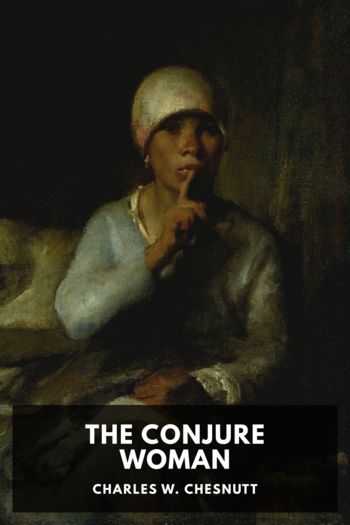The Lives of the Caesars, Suetonius [best book club books for discussion .TXT] 📗

- Author: Suetonius
Book online «The Lives of the Caesars, Suetonius [best book club books for discussion .TXT] 📗». Author Suetonius
He also undertook new works, the temple of Peace hard by the Forum and one to the Deified Claudius on the Caelian mount, which was begun by Agrippina, but almost utterly destroyed by Nero; also an amphitheatre849 in the heart of the city, a plan which he learned that Augustus had cherished.
He reformed the two great orders, reduced by a series of murders and sullied by long standing neglect, and added to their numbers, holding a review of the senate and the knights, expelling those who least deserved the honour and enrolling the most distinguished of the Italians and provincials. Furthermore, to let it be known that the two orders differed from each other not so much in their privileges as in their rank, in the case of an altercation between a senator and a Roman knight, he rendered his decision: “Unseemly language should not be used towards senators, but to return their insults in kind is proper and lawful.”850
Lawsuit upon lawsuit had accumulated in all the courts to an excessive degree, since those of long standing were left unsettled through the interruption of court business851 and new ones had arisen through the disorder of the times. He therefore chose commissioners by lot to restore what had been seized in time of war, and to make special decisions in the court of the Hundred,852 reducing the cases to the smallest number, since it was clear that the lifetime of the litigants would not suffice for the regular proceedings.
Licentiousness and extravagance had flourished without restraint; hence he induced the senate to vote that any woman who formed a connection with the slave of another person should herself be treated as a bondwoman; also that those who lend money to minors853 should never have a legal right to enforce payment, that is to say, not even after the death of the fathers.
In other matters he was unassuming and lenient from the very beginning of his reign until its end, never trying to conceal his former lowly condition, but often even parading it. Indeed, when certain men tried to trace the origin of the Flavian family to the founders of Reate and a companion of Hercules whose tomb still stands on the Via Salaria, he laughed at them for their pains. So far was he from a desire for pomp and show, that on the day of his triumph, he did not hesitate to say: “It serves me right for being such a fool as to want a triumph in my old age, as if it were due to my ancestors or had ever been among my own ambitions.” He did not even assume the tribunician power at once nor the title of Father of his Country until late.854 As for the custom of searching those who came to pay their morning calls,855 he gave that up before the civil war was over.
He bore the frank language of his friends, the quips of pleaders, and the impudence of the philosophers with the greatest patience. Though Licinius Mucianus,856 a man of notorious unchastity, presumed upon his services to treat Vespasian with scant respect, he never had the heart to criticize him except privately and then only to the extent of adding to a complaint made to a common friend, the significant words: “I at least am a man.”857 When Salvius Liberalis ventured to say while defending a rich client, “What is it to Caesar if Hipparchus had a hundred millions,” he personally commended him. When the Cynic Demetrius met him abroad after being condemned to banishment, and without deigning to rise in his presence or to salute him, even snarled out some insult, he merely called him “cur.”
He was not inclined to remember or to avenge affronts or enmities, but made a brilliant match for the daughter of his enemy Vitellius, and even provided her with a dowry and a housekeeping outfit. When he was in terror at being forbidden Nero’s court, and asked what on earth he was to do or where he was to go, one of the ushers put him out and told him to “go to Morbovia;”858 but when the man later begged for forgiveness, Vespasian confined his resentment to words, and those of about the same number and purport. Indeed, so far was he from being led by any suspicion or fear to cause anyone’s death, that when his friends warned him that he must keep an eye on Mettius Pompusianus, since it was commonly believed that he had an imperial horoscope, he even made him consul, guaranteeing that he would one day be mindful of the favour.
It cannot readily be shown that any innocent person was punished save in Vespasian’s absence and without his knowledge, or at any rate against his will and by misleading him. Although Helvidius Priscus was the only one who greeted him on his return from Syria by his private name of “Vespasian,” and moreover in his praetorship left the emperor unhonoured and unmentioned in all his edicts.859 He did not show anger until by the extravagance of his railing Helvidius had all but degraded him.860 But even in his case, though he did banish him and later order his death, he was most anxious for any means of saving him, and sent messengers to recall those who were to slay him; and he would have saved him, but for a false report that Helvidius had already been done to death. Certainly he never took pleasure in the death of anyone, but even wept and sighed over those who suffered merited punishment.
The only thing for which he can fairly be censured was his love of money.





Comments (0)